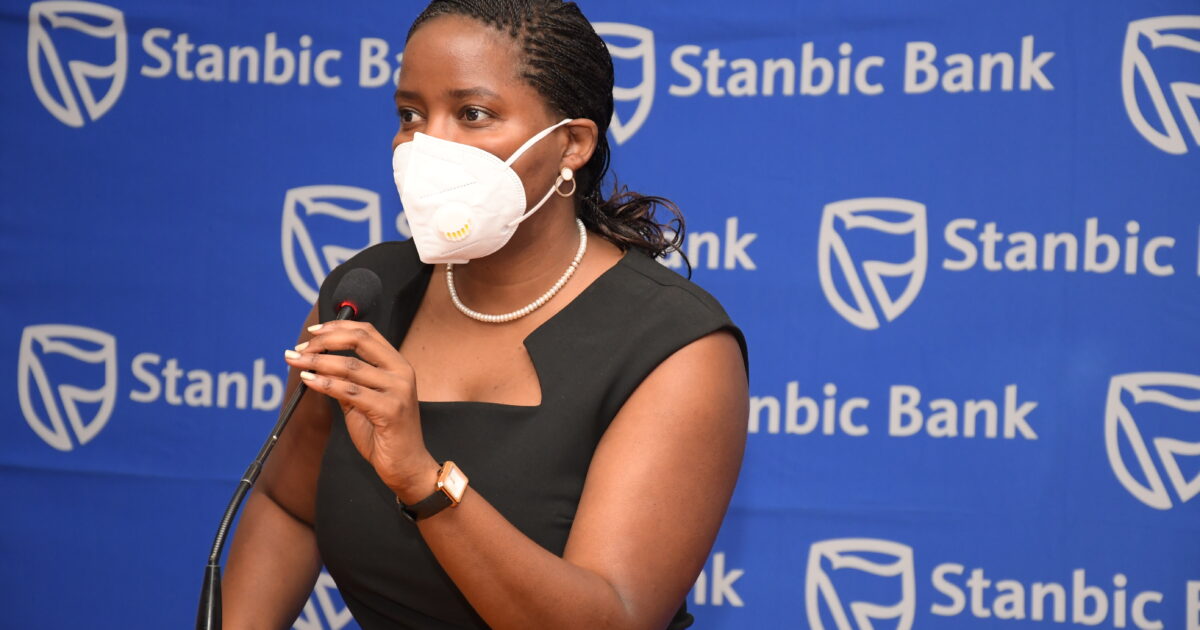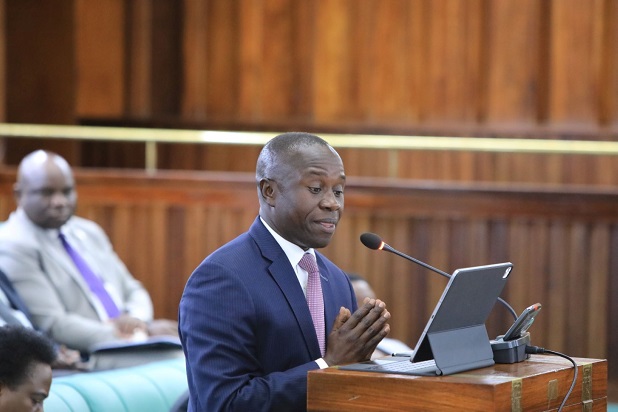Anne Juuko, the Stanbic Bank Chief Executive
Stanbic Bank Uganda has taken bold steps to support parents, teachers and schools as learners settle in class after nearly two years of education sector closure.
Speaking at a recent virtual forum titled ‘Bank of Uganda address on credit relief measures for school loans’ organized by Stanbic Bank and Proprietors of Private Educational Institutions’ Association in Uganda’ Anne Juuko, the Stanbic Bank Chief Executive, said the bank’s support to the education sector starts with its purpose ‘Uganda is Our Home, we drive Her Growth’.
“There is no way you can drive economic growth without enhancing human capital development,” she said, “the education sector as a business is 100% bankable.”
As schools prepared to re-open, Stanbic Bank announced the immediate availability of Shs60billion in hugely discounted ‘booster financing’ to the education sector.
Under the discounted booster finance, schools are able to borrow up to Shs500m in collateral-free (unsecured) loans. Parents can also access up to Shs250million in unsecured loans processed digitally and dispersed within five minutes at zero processing fee. The bank further revealed that its decision to waive all 2021 unpaid accumulated interest on loans to privately owned schools is a proactive initiative based on the understanding that schools have not been earning and that they need to be supported to regain their ability to settle their liabilities.
“Let’s understand your unique circumstances so we help you,” Juuko said at the virtual forum attended by about 50 representatives of private schools.
She said, in times like these, ethos like trust, transparency, openness and integrity are key to growing businesses.
Stanbic Bank has reduced the cost of borrowing to between 16%-19% for most of its customers mainly to support their economic recovery.
Juuko also said, the bank has in place insurance policies and urged school proprietors to consider taking them up to mitigate future business risks.
She also urged private school owners to take keen interest in Bank of Uganda’s credit relief measures that are available for the private sector.
BoU announced a number of credit relief measures in November last year running up to 12 months to 30the September, 2022.
It said, supervised financial institutions are permitted to grant one restructuring to credit exposures in the education sector which is adversely affected by the pandemic.
The BoU said, the restructuring maybe in the form of a repayment moratorium, extension of tenure, reduction of principle loan repayment installment, reduction of applicable interest rate or a combination of all the above.
Speaking at the virtual forum, Tumubweinee Twinemanzi, the Executive Director Supervision at Bank of Uganda clarified on these measures.
He said, the event of any restructuring granted will not be treated as an adverse change in the credit risk profile of the borrower for reporting to the Credit Reference Bureau nor will it affect the credit classification status or lead to a downgrade of such a credit facility for the duration of the credit relief measures.
He said, any loan granted relief shall maintain the same loan classification status over the 12 months to 30th September, 2022.
Twinemanzi urged financial institutions to be transparent and for customers to understand the terms of borrowing in line with these credit measures.
“Bank of Uganda stands ready to even review these guidelines if there is need,” he said.
“If your bank is not helpful, look for one that understands you as a customer,” he said, “Also take time and educate yourselves about financial services.”
Going forward, Twinemanzi said, the government should consider prioritizing key sectors like education by putting in place a special fund to support their recovery from covid-19 hit and any other future calamities.
“It is also important for banks and borrowers to embrace negotiations in loans management and restructuring,” he added.
Mike Kironde, the National Chairperson for Proprietors of Private Education Institutions Association in Uganda, applauded Stanbic Bank for organizing the forum through which ideas for smooth re-opening of schools would be shared.
He said private schools play an important role in growing Uganda’s economy through jobs and related opportunities.
Kironde said, 65% of students belong to private schools and the latter employs 800, 000 workers, of which 500, 000 are teachers and 300, 000 are non-teaching staff.
“We have learned the hard way on how to do things,” Kironde said, “It is important that we spend on necessities,” he said.
He said, they have learnt to do business depending on the need and also thought of the idea of having reserves to support their activities during tough times.
Kironde welcomed the idea of loan restructuring and the entire credit relief measures, saying it would help his members to reorganize their operational plans and stabilize as time goes on.
He also asked Stanbic to take lead in offering financial literacy programmes to schools to keep them alive in tough times.
Collectively, privately owned schools and teachers, owe financial institutions slightly over Ugx1.5trillion in loans, with nearly Ugx500billion in accumulated interest alone.
Uganda’s education sector is over 28,000 schools’ strong of which 80% are privately owned. It has approx.16 million students and contributes about 5% to the country’s GDP.





